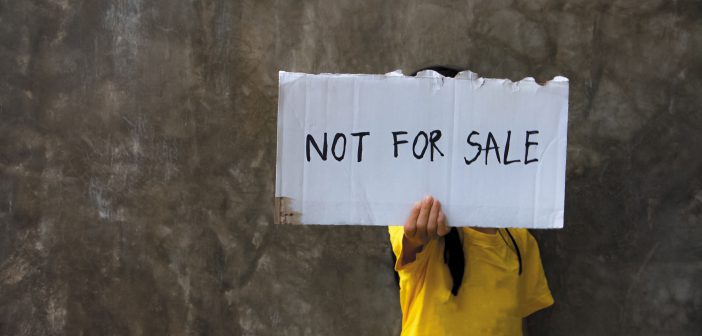by Geneva Toddy
Attending AAHOA’s Georgia Regional Conference & Trade Show in August felt like crashing a family reunion. Hoteliers from across Georgia gathered in Duluth to meet with vendors, catch up with each other, hear the AAHOA update, and continue Human Trafficking Awareness Training (HTAT).
The training is a sobering one. Videos played during the event offer testimonies from law enforcement, hoteliers, and trafficking survivors. The survivors’ stories are eye-opening; the stories remind us why this training is important. BEST reported that 75 percent of trafficking survivors stated that they were working out of hotels at some point while they were being trafficked.
This is why AAHOA and BEST offer free HTAT for hospitality industry employees and employers. Mar Brettman, PhD, is the executive director of Businesses Ending Slavery and Trafficking, where she works tirelessly to create awareness about human trafficking and offers free resources to businesses that want to do the same.

Mar Brettmann, PhD, Businesses Ending Slavery and Trafficking
“Investing less than an hour to take this free training reduces risk to your business and saves lives,” she said. “Training ourselves and our employees is a small step each of us can take to make a big difference.”
While no hotelier would claim that HTAT isn’t important, there are some legal gray areas that concern the business owners. One of BEST’s tips for helping reduce trafficking is to make a photo copy of the ID that every guest provides when they check in for their stay. At first glance, this is an excellent practice. If a person goes missing and they can be traced to the hotel, then law enforcement can positively identify if the missing person was there. However, some AAHOA Members posed a big question: Is this practice legal?
It points out a larger issue with these kinds of trainings. What can hoteliers do to help that comply with federal and the varying state laws in which they operate? Does this negatively impact a guest’s privacy? How can BEST and AAHOA help hoteliers with this problem?
BEST may not always have the answer with state-specific questions, which is why it’s important for local governments to get specific. Laws that are enacted to prevent human trafficking must provide allowances for hoteliers to make photocopies of guest IDs and possibly specify how long the hotels can keep these files. Of course, a paper trail leaves a guest’s information at risk of being stolen, so laws can get even more specific: Is this copy digital only?
Another issue brought up by an AAHOA Member was labor. It is recommended that every single hospitality employee undergo HTAT. However, the labor market isn’t in the best spot for hoteliers. Unemployment is low and even lower for those who are professionally trained. This means that hoteliers would need to invest in constant and recurrent education for their staffs.
And BEST is there for hoteliers to do so. AAHOA offers a free, digital training so that employers can refresh their staff members or train entirely new staff members.
While it’s true that we may have a long road ahead before human trafficking is eliminated, it also is true that AAHOA is committed to fighting alongside BEST every step of the way.
You can visit aahoa.com/humantraffickingresources to see how AAHOA can help you and your staff prevent and end human trafficking.
Geneva Toddy is the managing editor of Today’s Hotelier, dog mom, and nap enthusiast. She goes by Genny and encourages all AAHOA Members to reach out to [email protected] if interested in contributing to Today’s Hotelier.



